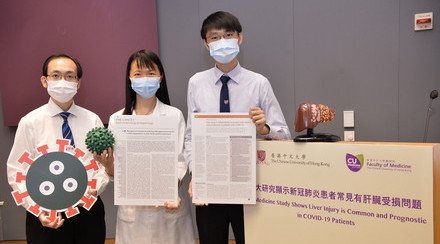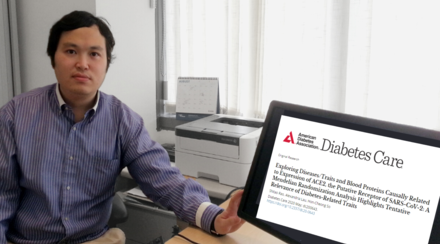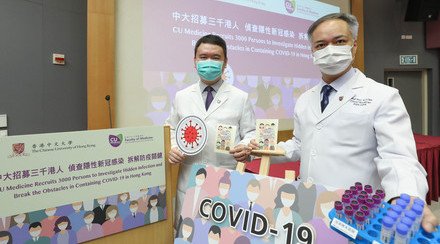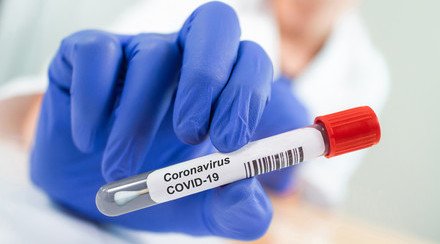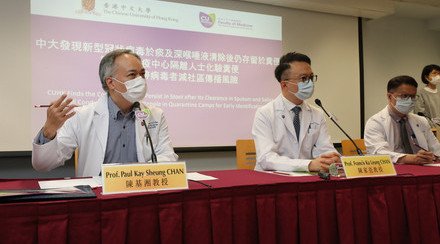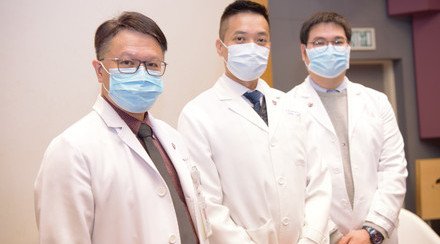CU Medicine Survey Shows Global Urological Services have been Significantly Deferred due to COVID-19 Pandemic
The Faculty of Medicine at The Chinese University of Hong Kong (CU Medicine) has recently conducted a global survey to examine the impact of the COVID-19 pandemic on urological care. This is the world’s first survey of its kind and includes a large sample of urology professionals from 6 continents. Results from over 1,000 participants showed that on average 28% of urology outpatient clinics, 30% of outpatient investigations and procedures, and 31% of urological surgeries had a delay of more than 8 weeks. The degree of cut-down of urological services increased with the degree of COVID-19 outbreak.
As outpatient procedures such as prostate biopsy and cystoscopy were being pushed back in most cases, it is worrying that there would be delay in prostate cancer and bladder cancer diagnosis. Findings of the survey have been published in the international medical journal European Urology.
Over 1,000 urology professionals from 6 continents responded to the survey
Global healthcare services have been immensely affected by the COVID-19 pandemic. In most hospitals that cater for managing COVID-19 patients, surgical departments have to minimise or suspend the elective surgeries. The suspension may even extend to outpatient as well as inpatient services, including the urological services.
To elucidate how the urological community has been managing urological patients in this global pandemic, an international research group conducted a survey from March 30 to April 7 this year. A questionnaire was developed to investigate the impact of COVID-19 on various aspects of urological services.
There were 1,004 participants who responded to the survey. The majority of them were consultant urologists and practising general urology, with urology trainees, and urology nurses or advanced practice providers. They were mostly based in Asia, followed by Europe, North America, South America, Africa, and Australia and New Zealand.
Key findings of the survey are listed as follows:
Impact on urological services
- 28% of outpatient clinics had a delay of more than 8 weeks. Clinics for benign conditions including benign prostate hyperplasia, infertility, renal stone and bladder stone were most affected, while those for malignant conditions including prostate cancer, kidney cancer, bladder cancer and testicular cancer were less affected.
- 30% of outpatient investigations and procedures had a delay of more than 8 weeks. Prostate biopsy and cystoscopy services had been significantly cut down.
- 31% of urological surgeries had a delay of more than 8 weeks. Surgeries for benign prostatic hyperplasia, female urinary incontinence, renal stones and bladder stones had the highest rates of cut-down, while those for renal transplantation and urological cancers were less affected.
- The degree of cut-down of urological services increased with the degree of COVID-19 outbreak. This observation was consistent across various types of urological services.
- 47% of the respondents believed that the accumulated workload could be dealt with in a timely manner after the COVID-19 outbreak.
- 50% of the respondents thought the postponement of urological services would affect the treatment and survival outcomes of their patients.
Impact on healthcare professionals
- 41% of the respondents reported that their hospital staff members had been diagnosed with COVID-19 infection, with a higher proportion in Europe and North America than in other continents.
- 27% reported personnel shortage; 26% had to be deployed to take care of COVID-19 patients.
- Only 33% felt that they were given adequate personal protective equipment, with a lower proportion in Africa and Europe; 47% of healthcare providers expressed fear of going to work.
Dr. Jeremy Yuen Chun TEOH, Assistant Professor, Division of Urology of the Department of Surgery at CU Medicine, who led the global survey, stated, “Our survey revealed substantial disruptions in urological care amid the COVID-19 pandemic. Although the greatest reduction was observed for benign and non-urgent conditions, outpatient procedures such as prostate biopsy and cystoscopy were being delayed in most cases. This raises concerns as these procedures are assumed to be performed for suspected prostate cancer and bladder cancer.”
In addition, as most urologists in the survey expressed their anxiety over insufficient training and protective equipment, Dr. Teoh highlighted the importance of the impact on the mental health of healthcare workers involved in COVID-19 care. He suggested that easy access to COVID-19 testing, adequate provision of personal protective equipment and infectious disease training, and support from family, colleagues and friends, might help alleviate the psychological stress being imposed to healthcare workers.


